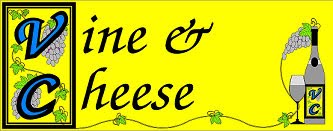Great title, eh? Polyester Wines. I stole it. Back in late 2013 the WSJ ran a book review by Robert Draper of Edward Humes' A Man and his Mountain. Polyester Wines was his title for that review. Humes' work was a biography of Jess Stonestreet Jackson, founder of Kendall-Jackson Winery. This post is about the review.
Do you like bad movies? Probably not. So you read a review of the flick before wasting your time if it's available on TV or worse yet, if you have to lay down money at the theatre. Sometimes those reviews can be worthwhile entertainment in themselves. If the critic is a Siskel or Ebert they can easily be better than the movie. That's what we have here. In this review Draper is even better than Siskel-Ebert.
Draper is a wine guy, by the way, which gives him creedence and leeway to savage Humes and his paean to Jackson. He does such a great job you have to believe he must be a natural polemicist at heart. Draper goes so far as to challenge whether Humes (or Jackson) even drink wine!
Did I mention that Draper is a wine guy? He writes wine columns for the WSJ in tandem with Lettie Teague so this book review comes from someone who knows what he's talking about. Draper's cynicism for the mass-marketers of California wine on display here is most appropriate and even refreshing.
Kendall-Jackson is to Chardonnay what Sutter Home is to White Zinfandel. Both companies claim a "stuck fermentation" led them to create their sweeter style of varietal wine. Both companies effectively killed their competition organically; they gave Americans what they wanted - sweeter wines. The difference between the two is that Sutter Home created something new that took off as a light sweet rose style. The dry rose category destruction that followed was just collateral damage. Jackson took the historic Chardonnay category, distorted it and then lectured Americans that it was the terroir that made his wines taste the way they did.
So it wasn't the Muscat or Gewurztraminer he blended into his Chardonnay after all that made that magical taste. I guess it wasn't the oak or residual sugar he left in either. It was the terroir all the time. I'll be darned.
Draper not only has nothing for Mr. Jackson, he has less than nothing for Humes whom he ridicules for his glorification of Jackson. For Draper, Jackson is a blood thirsty capitalist who purchased wine country real estate with abandon when he discovered his business was a potential goldmine and became a billionaire as a result. Humes describes wine making as "something ancient, unique, mystical and profound" and Jackson as "a man who set out to teach America to love good American wine." Geez!
There is nothing wrong with prospering from your labors in the wine industry - or anything else for that matter. Investing in vineyards and wineries is a huge gamble. It is hard work that at the end of the day, may be for nothing. If you can do well at it, that's to your credit. So if you're recounting history why not keep it real.
Please join us this Thursday at 5pm when Rob Dye offers us a tasting from his portfolio.
Sunday, August 4, 2019
Subscribe to:
Post Comments (Atom)




No comments:
Post a Comment